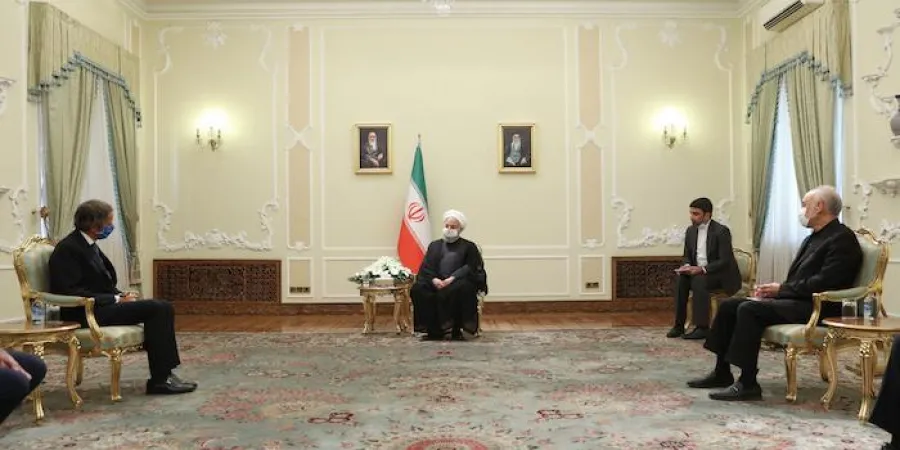Iran: We will not expel the nuclear inspectors from our territory
The Iranian Foreign Ministry issued a conciliatory statement after weeks of tension with the US. In addition, there are reports in Washington that Biden is interested in holding direct dialogue with Tehran
Mandi Kogosowski
| 26/01/2021
The Iranian Foreign Ministry said yesterday (Monday) that Tehran does not intend to expel the International Atomic Energy Agency (IAEA)'s nuclear inspectors from its territory, and clarified the implications of the controversial law on the matter that was approved by the country's parliament last month, the Asharq al-Awsat newspaper reported.
The law, which was approved by the parliament despite opposition by the government, requires Iran to cease by February 21 the supervision that was determined in the framework of the nuclear agreement, unless the American sanctions are lifted. "If the Americans do not lift financial, banking and oil sanctions by Feb. 21, we will definitely expel the IAEA inspectors from the country and will definitely end the voluntary implementation of the Additional Protocol," said Iranian parliamentarian Ahmad Amirabadi Farahani last month. "We gave the U.S. a one-month opportunity. The new U.S. administration will take the office on January 21."
The president of Iran, Hassan Rouhani, is opposed to the law, called "the strategic action plan for the lifting of sanctions and the protection of the Iranian people’s interests", and claims that it has a negative effect on the country's diplomatic activities. The Biden administration is interested in returning to the nuclear agreement, from which ex-President Trump withdrew, in one form or another. The Sky News Arabia network reported yesterday that an official in Washington said that the new administration is expected to launch an initiative for starting direct dialogue with Tehran via European mediators, while consulting with the allies of the US in the Middle East, especially Israel and the Gulf states.
The Iranian Foreign Ministry issued a conciliatory statement after weeks of tension with the US. In addition, there are reports in Washington that Biden is interested in holding direct dialogue with Tehran
The Iranian Foreign Ministry said yesterday (Monday) that Tehran does not intend to expel the International Atomic Energy Agency (IAEA)'s nuclear inspectors from its territory, and clarified the implications of the controversial law on the matter that was approved by the country's parliament last month, the Asharq al-Awsat newspaper reported.
The law, which was approved by the parliament despite opposition by the government, requires Iran to cease by February 21 the supervision that was determined in the framework of the nuclear agreement, unless the American sanctions are lifted. "If the Americans do not lift financial, banking and oil sanctions by Feb. 21, we will definitely expel the IAEA inspectors from the country and will definitely end the voluntary implementation of the Additional Protocol," said Iranian parliamentarian Ahmad Amirabadi Farahani last month. "We gave the U.S. a one-month opportunity. The new U.S. administration will take the office on January 21."
The president of Iran, Hassan Rouhani, is opposed to the law, called "the strategic action plan for the lifting of sanctions and the protection of the Iranian people’s interests", and claims that it has a negative effect on the country's diplomatic activities. The Biden administration is interested in returning to the nuclear agreement, from which ex-President Trump withdrew, in one form or another. The Sky News Arabia network reported yesterday that an official in Washington said that the new administration is expected to launch an initiative for starting direct dialogue with Tehran via European mediators, while consulting with the allies of the US in the Middle East, especially Israel and the Gulf states.



